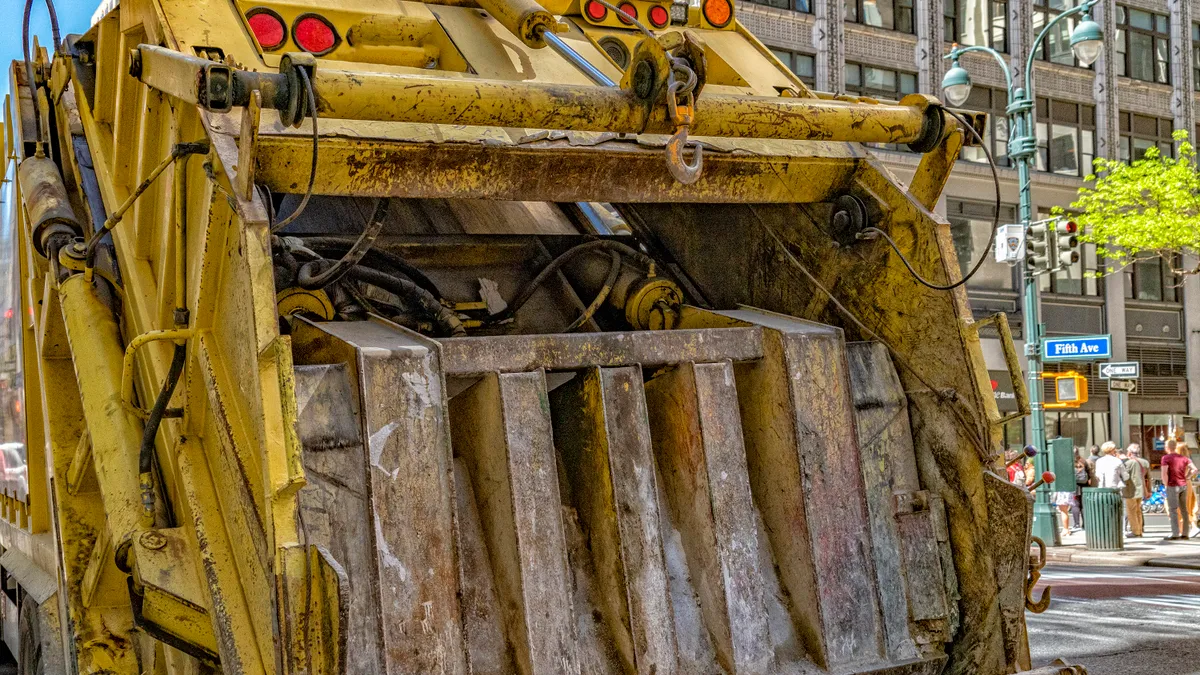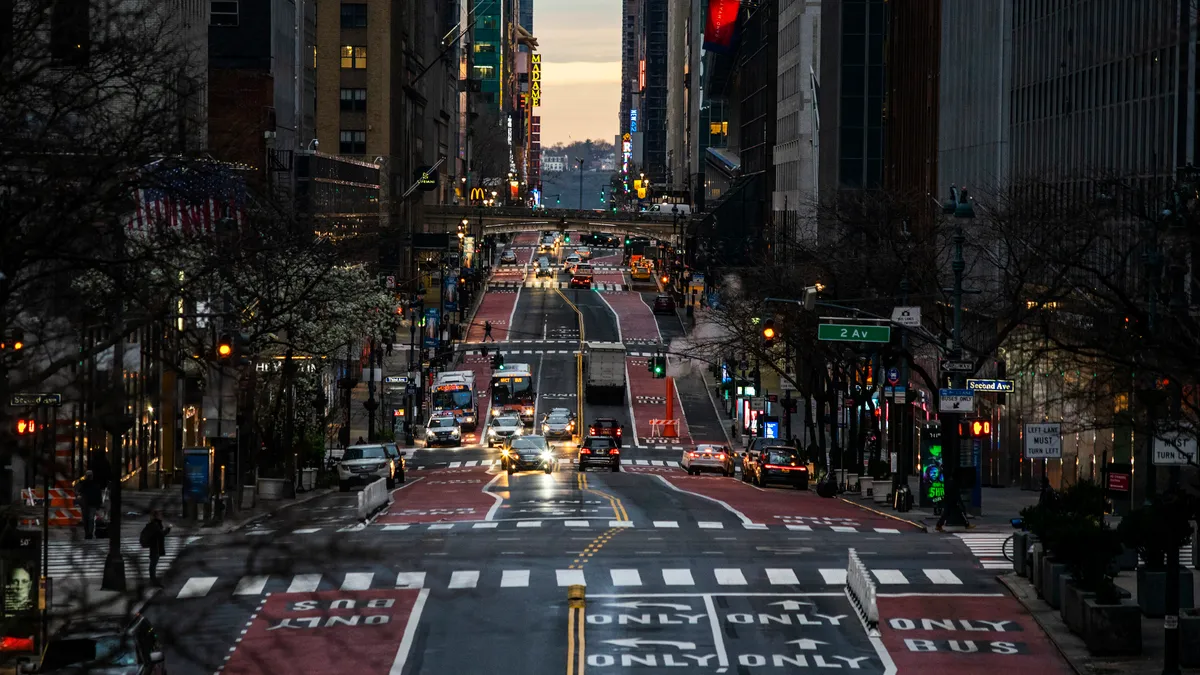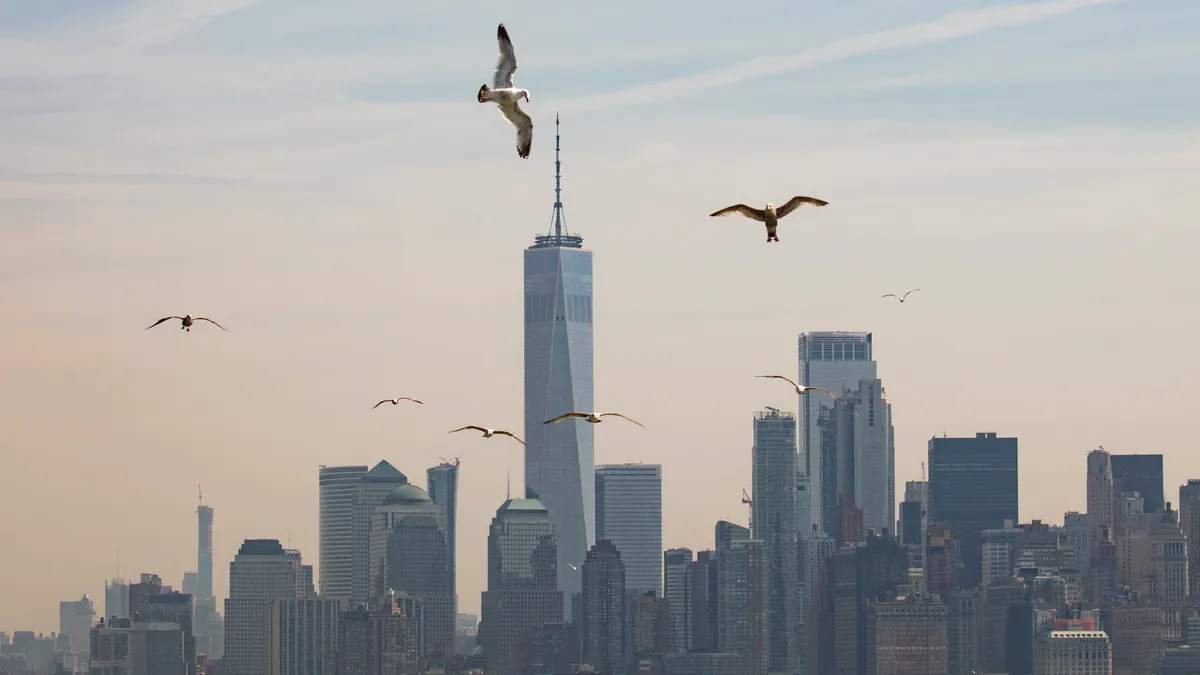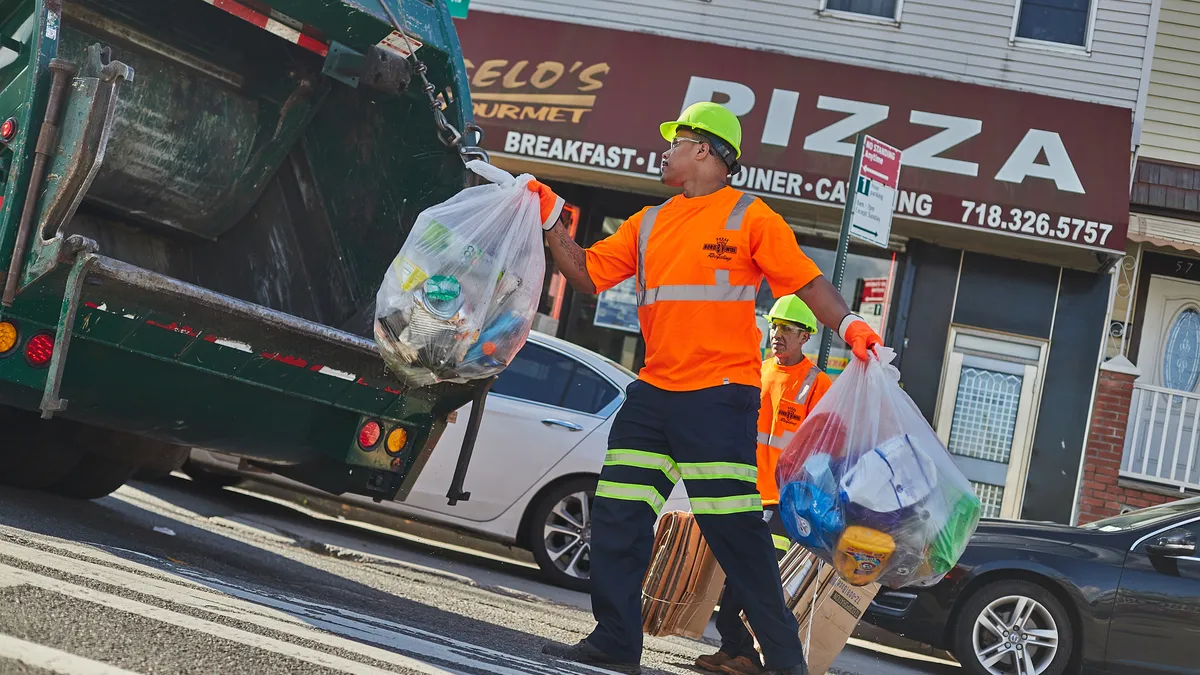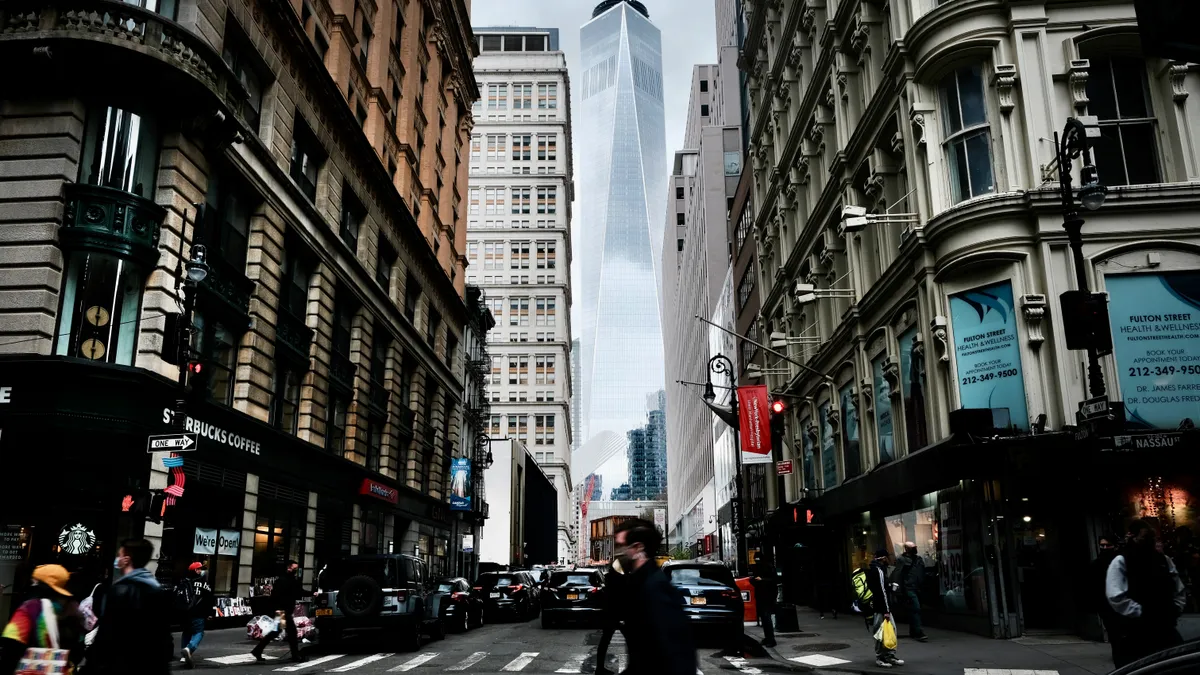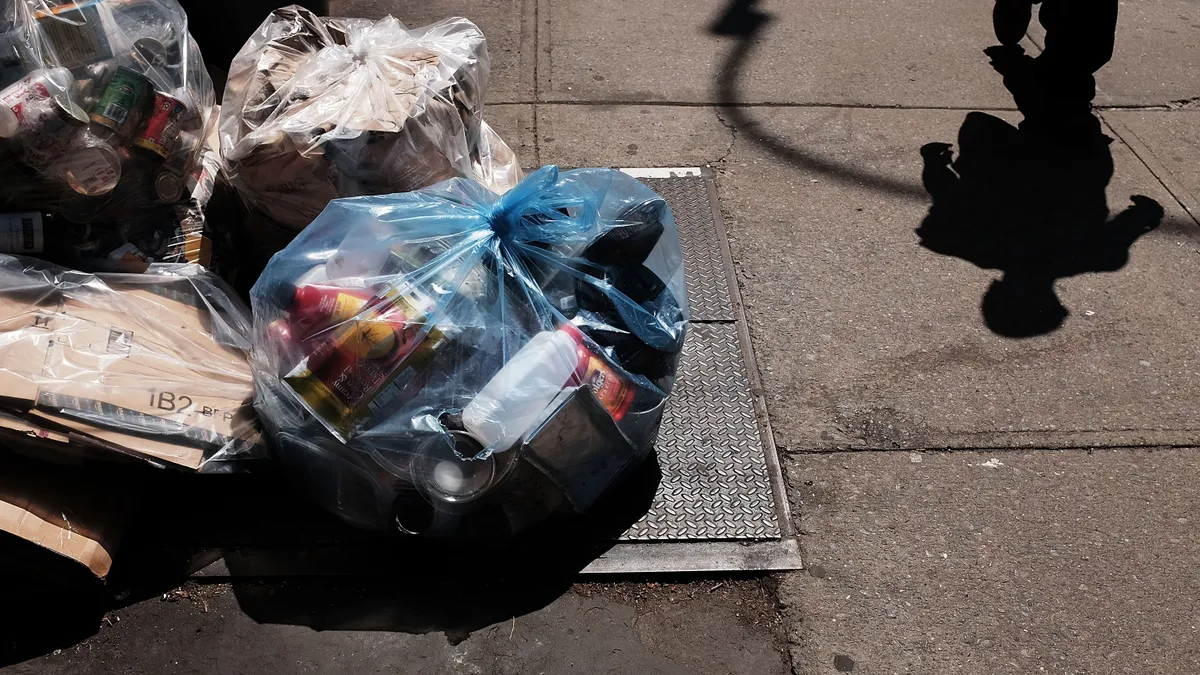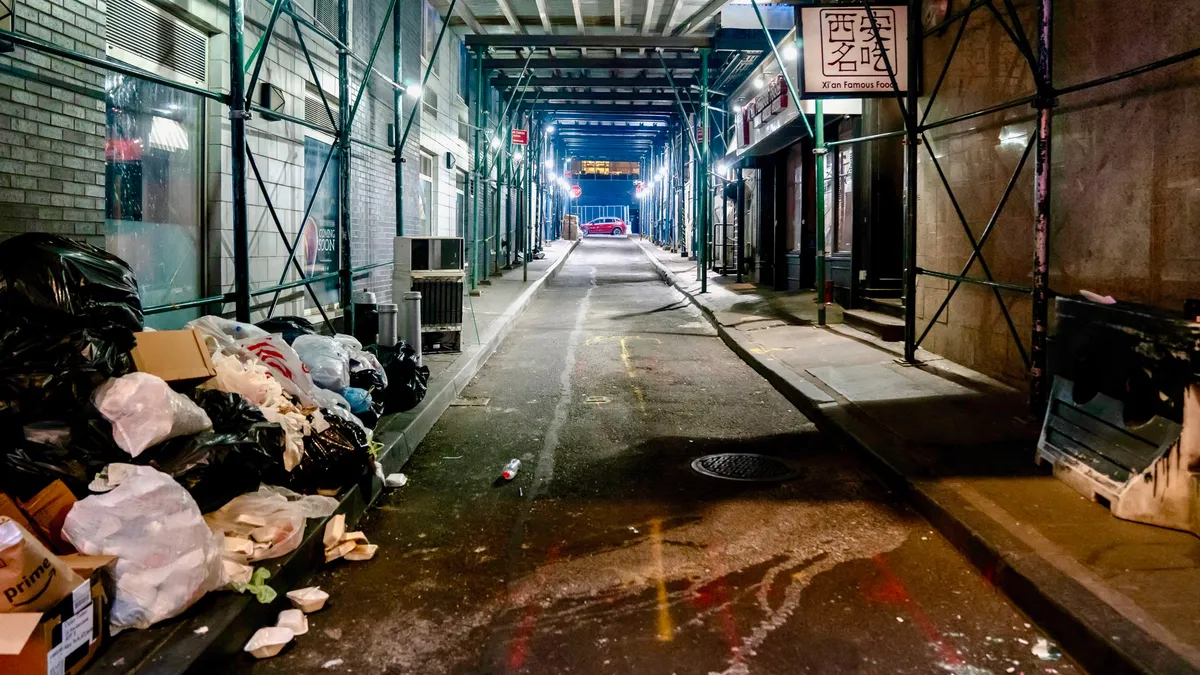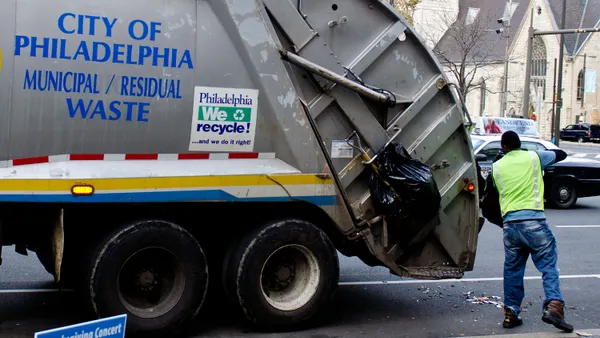The person in charge of regulating New York's commercial waste industry is heading out at the end of this week, leaving behind nearly five years of increasing pressure in the local market.
Dan Brownell was appointed commissioner of the Business Integrity Commission (BIC) in May 2014 by Mayor Bill de Blasio. During his tenure, the agency has been credited with reviving a dormant Trade Waste Advisory Board, hosting multiple "safety symposium" events, working on a free trade waste safety manual and overseeing an investigation that ultimately led to the demise of the now notorious company Sanitation Salvage.
On the occasion of Brownell's departure (said to be voluntary), some in the local industry have applauded his time as commissioner, pointing to his willingness to collaborate and heightened attention around worker safety. Others that have been more critical in the past, such as labor groups, have had little to say on the matter. In first reporting it, ProPublica wrote that Brownell was leaving after "months of embarrassing news coverage," questioning his agency's speed in addressing labor issues. A New York City Council committee investigation into the agency remains ongoing.
As the potential for a massive overhaul under a commercial waste zone system approaches, the agency's role is expected to continue evolving regardless. Waste Dive recently spoke to Brownell about his tenure, safety regulations and ongoing local corruption concerns.
The following interview has been edited for clarity and annotated for context.
WASTE DIVE: Why are you heading out now at this point in your tenure?
DAN BROWNELL: I've had almost 35 years of government service, almost 30 of that with the city, and I just feel it's time to retire from government service and do a couple of things in the private sector, and also spend more time with a not-for-profit that I've been working with since before I went to law school.
What have you learned or found surprising about the way New York's commercial waste industry operates?
BROWNELL: I really didn't know that much about the industry. I was good friends with the prosecutor that did the investigations of the trade waste industry back in the 1990s, Marybeth Richroath.
I would hear things from her about what the industry was like back then, when it was controlled by organized crime, and the amount of violence in the industry and how businesses couldn't even select their own carter — and if they tried to do it, they could get their windows smashed or have other kinds of vandalism committed against them.
But other than that, I really didn't know much about it — and so when I got here, it was a crash course in what the industry was like. Before coming here, I did spend some time with my predecessor, Shari Hyman, and found out some things from her.
Attention around local working conditions and regulations has increased significantly in recent years. How would you describe the way the public conversation about commercial waste has evolved during that time?
BROWNELL: As you know, with regard to the commercial waste zone bill that's now being worked on between the administration (which includes us) and the city council, the main focus of that bill, of course, is environmental. [It uses] a structure that would essentially mandate that collection routes be much shorter, with the intention to reduce the amount of truck miles on New York City streets — which at this point, and I think forever in this industry, has been absolutely unmanageable.
And then of course the other big thing in the industry, which we've been much more directly involved with, is the whole focus with the Vision Zero Task Force of making this inherently very dangerous industry safer. And I think we've made a lot of progress. It's not done, but we've made a lot of progress in that regard.
BIC's approach to regulating safety issues has come under more scrutiny in the past year or so, leading to questions about the agency's authority and responsiveness. Last summer, Waste Dive interviewed multiple former BIC commissioners and found a range of opinions on how the agency should be approaching this issue.
During that time, there have been ongoing questions about BIC's role in safety regulation. Do you feel like the critiques about BIC not doing enough on safety are accurate?
BROWNELL: In looking back, sure, I wish in many ways we had done things sooner. But you have to remember, this is a small agency and it doesn't take a lot, especially with, let's say, a big investigation or something else, to become a bit all-consuming for us. And so that's why we never do anything alone. We always do everything like this with other people.
So sure, I mean, there are some things I wish we had done sooner, but this is the real world. And so I actually think that we've made pretty good progress.
As we were kind of in the thick of the Sanitation Salvage investigation ... it became very clear to us that in many ways our authorizing legislation, which was created back in the late '90s, doesn't really focus on — and therefore only provides us with — limited authority in a regulatory sense to regulate safety.
BIC has also been pushing a package of new legislation since last fall — part of which was recently signed into law by Mayor Bill de Blasio – to potentially expand its authority over labor-related issues. The remaining bills still don't have a sponsor or committee hearing date.
The two main aspects of that are we can make licensing and registration decisions based on the safety issues, if any, with regard to particular companies that come to us with an application. The other part that's really important is it allows us to promulgate more rules directly related to safety for the industry, and those are critical. We work with the industry collaboratively where we can, but in an industry like this, we need to be able to mandate certain things — and we can only do that through rules.
And then the other part of this bill, which is really important, is that it would require drivers in the trade waste industry to get a license from us. [W]hen drivers run red lights, speed and otherwise engage in dangerous activity on the road, right now, because we don't license them, we're really not able to deal directly with them as a regulator. We have to take action where possible against the company. Unless the company is engaging in a regular course of unsafe activity with regard to its operations, we're very limited.
Brownell notes other city agencies currently have authority to regulate cab and for-hire drivers, as well as tow trucks drivers.
And I say that knowing that — and certainly not disagreeing with the complaint that's been made by advocates, by members of the council — that to a large extent, bad driver behavior on the road is directly related to companies that really force their drivers into these ridiculously long collection routes to get their routes done as soon as possible. I have absolutely no doubt that happens, and that's definitely something that we want to deal with.
Amid this safety conversation, the industry backed its own favored bill (Intro-996) last year that includes various safety initiatives and voluntary measures, while maintaining an open market system. That legislation hasn't seen any movement, but it was one factor in raising the question about why safety regulations couldn't or shouldn't be addressed prior to the potential enactment of a franchise zone system.
Do you think there's value in not just having the safety conversation be about an eventual zoning system, and trying to find things that can happen before then?
BROWNELL: Quite frankly, it makes no sense whatsoever. I mean, first of all, under the best of circumstances, if the commercial waste zone bill were to pass, let's say, in the next three or four months, the earliest that it would actually start taking effect is a couple of years from now. And God only knows what could happen. I'm sure there are going to be legal challenges and other things that are going to make that even longer. My hope is, and I think that bill is really important, that it passes as soon as possible and goes into effect as soon as possible.
That having been said, there's absolutely no reason why improving safety in the industry has to wait for that bill. The bills that I've been talking about in every way complement commercial waste zones.
Brownell notes BIC's regulatory authority also includes other types of companies that won't be affected by franchise zones, such as C&D haulers, which also have a record of crashes.
Many people think about New York's waste industry as being largely done with organized crime. Do you think if BIC wasn't there, things could perhaps change in the market again?
BROWNELL: It's different, but organized crime is still very much there — especially anything related to construction and trucks — and in other areas. [H]aving a very detailed, intensive background investigation of applicants and their information, financials, who the principals are and everything else ... and having the authority to deny licenses or revoke licenses when serious corruption-related activity is found, is just key.
Unfortunately, the garbage industry has a lot of corruption in it in general, and it's way beyond just organized crime. We see things all the time in the suburbs and in places like Connecticut. New Jersey has a watered-down version of BIC. But even there, companies that have been chased out of the city by us are operating and engage in various kinds of corrupt and dangerous activity.







